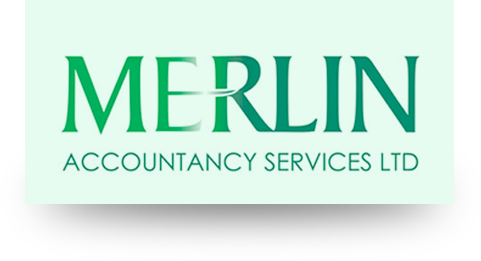For every business bookkeeping is a necessity, and while many assign as much of this admin task as they can to their accountant, others keep it on the DIY list – without a hitch, until now.
Making Tax Digital is being rolled out to more and more tax areas, and while it’s touted as a means to make tax more streamlined and efficient for individuals and businesses, it also gives HMRC better sight of tax contributions and accounts keeping.
This isn’t a rallying cry to rush your accountant’s office, in-house bookkeeping is perfectly good practice, but it might be the right time to stress-check your accounting or get some advice. To help, we’ve put together a shortlist of bookkeeping areas we find most commonly need some guidance.
- Bank feeds
A bank feed is a secure connection between your bank account and accounting software. These can be easily used and can save time, especially if you have a large number of bank transactions.
Hazard: Bank feeds are being used as an expenditure shortcut; supplier invoices are either not entered or sporadically entered. Another potential slip is payments being entered straight into profit and loss (P&L), rather than against a supplier account. This can lead to duplicate postings, an understated profit figure, and consequently VAT return problems.
Action: Make sure each entry on a bank feed has an invoice entered against it.
- Narratives
Narratives – or descriptions – for income and expenditure should be tailored to provide useful information at a glance, but are often auto-filled by bank feeds.
Hazard: Some narratives, and those that have come from bank feeds, can lack in detail and make entries difficult to identify, especially if there is no invoice or paperwork to back up the payment.
Action: Enter details into the narrative that will be useful indicators. For example, where a time period is applicable like insurance, rent, and utilities, putting the dates in the description will help make sure you, or the accountant, have the right costs for that year when completing tasks like year-end.
- VAT
VAT is complex at the best of times with the rules varying in each business sector. For most VAT-registered businesses, the process is straightforward; you charge VAT on your sales, and you claim VAT on your expenditure.
Hazard: There are certain elements of income and expenditure that are exempt from VAT like grants, insurance, and bank charges. Incorrect entry can easily result in overpayments or incorrect claims to HMRC.
Action: Not every business or person that you purchase from is VAT registered and it’s worth checking that detail when entering the invoice or receipt. Invoices typically show the VAT as a separate amount while receipts might only show the amount paid. Check for a VAT number in these instances, it will tell you what percentage to claim on that expenditure; helping to avoid overpayments or incorrect claims.
- Payroll
There are two elements to payroll: The cost to the business, and the liabilities it creates.
Hazard: More often than not, businesses will put both elements into the P&L which can produce understated profits that become problematic when planning and budgeting, as well as when you’re creating bonuses for directors.
Action: Enter the payroll information using a journal supplied by your payroll provider. All payments can then be posted against the relevant liability on the Balance Sheet (BS). This will ensure the payroll information is accurately recorded in the accounts.
- Filing
For some people having well-organised files is enormously satisfying – it also pays dividends when accounting deadlines loom.
Hazard: Poorly organised files will add a significant amount of time to major accounting tasks like year-end. It could also leave the business at risk of not having complete records, resulting in missed deadlines and financial penalties.
Action: Invest time in both getting your filing in order and keeping it maintained. As most online and cloud-based accounting software packages allow you to upload invoices and statements, attach them to your entries at the time of creation to improve the traceability of paperwork and those obscure invoices.
- Consistency
Bookkeepers will be familiar with the chart of accounts and will have, at some point, had to scroll through a never-ending list of codes and their associated categories.
Hazard: Most charts of accounts have far too many choices for what you require, and this can lead to more than one code being used for the same task. For example, software subscriptions are entered as both subscriptions and computer costs. It makes the task of finding invoices and your business costs all the trickier.
Action: We haven’t yet come across an accountancy package that won’t allow you to assign default codes – and it’s worth doing. Tailoring your chart of accounts means you’ll no longer have to trawl through a tremendous list, nor will you have to remember what and where codes need to be assigned, it could even help you identify tax-saving opportunities.
- New bank accounts, loans and hire purchase and finance agreements
In the space of a year it’s quite normal for businesses to open new bank accounts, take out loans, and sign hire purchase agreements for amenities like company vehicles and equipment.
Hazard: Accounting for these incorrectly can lead to profits being presented as lower than they are and will have a knock-on effect on financial decision-making.
Action: Make sure you have copies of statements and agreements from these new accounts and agreements in plenty of time for year-end, be it self-managed or using the services of an accountant. Any new loans, either bank loans or agreements, need to be accounted for correctly and the liability, including interest, needs to be split between the years left to pay.
To find out more about our approach to helping clients manage their bookkeeping – and make tax less taxing – please contact us on 01392 272972 or email enquiries@merlin-accountants.co.uk.
No question is too small, it’s what we are here for, our clients say that it’s useful to have a numerate friend prodding their thinking, especially one who understands the issues. You’ll find us a good fit if you’re looking for an accountant as an investment – rather than just a cost.


